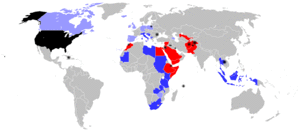
How scrupulous are our tech companies?
A new report details how and when the Internet giants are doing things like giving information to repressive governments or working with less-than-savory vendors.
The Global Network Initiative (GNI), a mixed consortium that includes Google, Microsoft, and Yahoo, just released their 2011 annual report (PDF), which lays out findings on all three companies’ human rights and free speech records.
Unfortunately, the catch in the report is that the full findings won’t be released until 2013, but the report details how outside auditors are being granted unprecedented access to all three’s inner workings. According to the report, all three companies need to engage more directly with human rights groups and scrutinize vendors more closely.
As these things go, the report’s findings are hidden in dense legalese. The Global Network Initiative, which was founded in 2008 and includes big names like the Berkman Center for Internet and Society, the Church of Sweden, and Human Rights Watch, monitors tech firms’ policies and procedures when dealing with government requests affecting free speech and privacy. While this concern is primarily associated in the public mind with repressive governments such as China and Iran, much of the report’s text deals with investigations–primarily concerning copyright–instigated by the American government.
One of the difficulties for all three corporations was in opening their doors to outside examiners. Writing in Google’s Public Policy Blog, Google’s Bob Boorstin and Lewis Segall diplomatically stated that GNI told them “that while we’re by no means perfect, the assessments are credible and rigorous and demonstration that companies are making progress.” In parts of the report itself, the GNI seems to acknowledge that participating companies are afraid they might gain access to trade secrets or proprietary product information.
via Fast Company – Neal Ungerleider ᔥ
Bookmark this page for “Human Rights Violations” and check back regularly as these articles update on a very frequent basis. The view is set to “news”. Try clicking on “video” and “2” for more articles.







